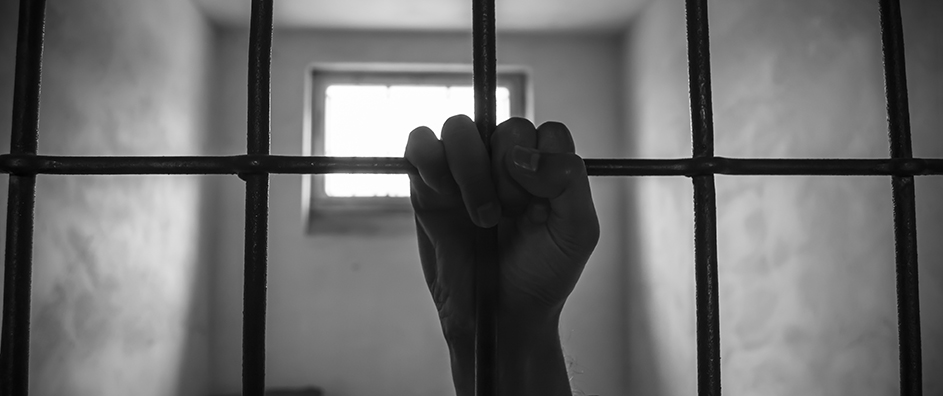In the complex and often tumultuous landscape of contemporary society, the teachings of the Bahá’í Faith provide a beacon of hope and guidance. Within this framework, the narrative of ‘Imprisoned with Honor’ exemplifies the resilience, dignity, and tenacity often associated with the faith’s followers. This article seeks to elucidate the profound implications of Bahá’í teachings as articulated by a jailed educator, whose experiences serve to reflect the broader ethos of the community. Through this exploration, various subthemes will emerge, including the intersection of education and spiritual development, the resilience in the face of adversity, and a holistic understanding of justice framed within Bahá’í principles.
One of the most salient aspects of the Bahá’í Faith is the emphasis on education as a fundamental right and a cornerstone of personal and communal development. The imprisoned educator’s journey underscores the intrinsic value that Bahá’ís place on learning—not solely as an accumulation of knowledge, but as a transformative process that cultivates both moral and spiritual rectitude. In this context, education transcends mere academic achievement. It becomes a powerful tool for societal progress and the upliftment of humanity. The educator’s unwavering commitment to teaching, despite the unrelenting repression faced, highlights a profound belief in the capacity of enlightenment to engender change. This resistance to oppression through the pursuit of knowledge exemplifies the Bahá’í conviction that education is an inalienable right, vital for individuals and communities alike.
The narrative also delves into the profound theme of resilience amid adversity. The Bahá’í Faith teaches that challenges are not merely obstacles but opportunities for growth and service. The educator’s steadfastness in the face of incarceration serves as a poignant illustration of this principle. Rather than succumbing to despair, the educator channels their experience into a broader dialogue about the importance of spiritual virtues such as patience and fortitude. This fortitude, deeply rooted in faith, illustrates a crucial Bahá’í teaching: the notion that one’s spiritual progress is often forged in the crucible of hardship. This perspective radically reframes the experience of imprisonment; it becomes not a mark of humiliation, but a testament to unyielding belief and commitment to the tenets of the Bahá’í community.
In the Bahá’í worldview, justice is not merely the absence of oppression but a dynamic and integral concept that encompasses fairness, equity, and love. The imprisoned educator’s reflections illuminate the profound implications of this belief. Faced with unjust imprisonment, the educator articulates a vision of justice that extends beyond mere retribution. Instead, it incorporates a holistic understanding that seeks the upliftment of all individuals—both the oppressed and the oppressor. This notion of transformative justice aligns with the Bahá’í teaching that emphasizes the need for collective healing and reconciliation. The educator’s messages convey that true justice is restorative; it mends the social fabric while fostering a sense of community and shared responsibility.
The narrative also emphasizes the role of community in supporting individuals during times of trial. The Bahá’í Faith espouses a communal rather than an individualistic approach to spirituality. The educator’s experiences reveal how the Bahá’í community has rallied to uphold principles of compassion and solidarity. Letters of support and acts of kindness from fellow community members not only serve to buoy the spirit of the imprisoned educator but also exemplify the collective commitment to justice and human rights within the Bahá’í ethos. This act of communal solidarity is critical, as it affirms the shared bond of humanity, resonating deeply with the Bahá’í view that ‘the earth is but one country and mankind its citizens.’
Importantly, the educator’s plight raises questions about the broader context of religious freedom and human rights violations across the globe. The Bahá’í community has faced systemic persecution, particularly in countries where the principles of the faith are viewed as a threat to prevailing ideologies. The educator’s voice serves as a clarion call advocating for the recognition of the sanctity of human rights, underscoring the imperative to protect freedoms that enable people to pursue their beliefs without fear of retribution. This advocacy is woven into the very fabric of Bahá’í teachings, which assert that the advancement of civilization is closely tied to the promotion of justice and equity.
Furthermore, the narrative invokes the importance of interfaith dialogue and understanding as vital components in fostering peace and social harmony. In an age marked by division and strife, the Bahá’í perspective emphasizes the need for a united global community—a vision articulated in the experiences shared by the educator. The teachings advocate for empathy and respect towards diverse belief systems, positing that genuine dialogue can dismantle barriers of misunderstanding and intolerance. By amplifying the voices of those who have suffered for their beliefs, the faith sponsors a movement toward greater understanding and cooperation across differing cultural and spiritual landscapes.
In conclusion, the reflections of the jailed educator encapsulate the quintessence of Bahá’í teachings, revealing how principles of education, resilience, justice, and community intersect meaningfully. These narratives not only inspire but serve as powerful reminders of the imperative to uphold human dignity in the face of adversities. As the global community grapples with escalating challenges, the insights derived from the experiences of the imprisoned educator hold the potential to encourage a collective movement towards justice, equity, and unity. It is through honoring such voices that the world may foster a deeper commitment to the transformative power of faith—one that honors the profound interconnectedness of all humanity.
